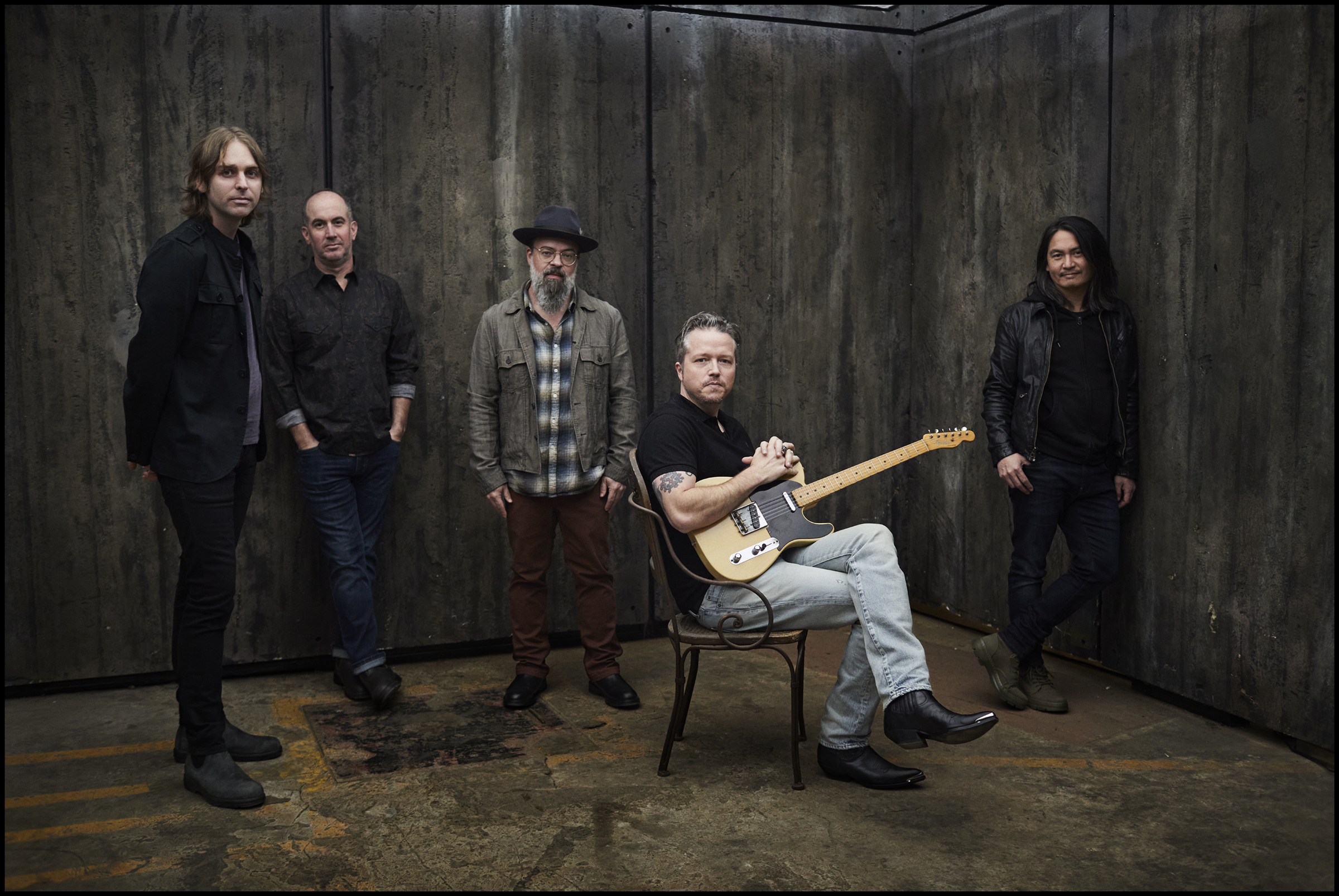By L. Kent Wolgamott
arts@c-ville.com
Pushed off the road by the pandemic, Jason Isbell spent a good chunk of 2021 in Oklahoma, where he was acting in director Martin Scorsese’s Killers of the Flower Moon. That experience, from meeting Oklahomans in the rural areas where the movie was shot to watching Scorsese work, figured into Isbell’s latest album, Weathervanes.
So how and why did Isbell end up in the Oscar-nominated movie?
“I didn’t really want to be an actor, but I think I wanted to act,” says Isbell in a recent phone interview. “I was looking for a way to help somebody tell a story. We were locked down; COVID kept us from touring. So I asked my manager to see if there were any television shows or movies I could get on. I’d never done that before. I played myself on an episode of ‘Billions’ and was an extra on the Deadwood movie on HBO because I loved ‘Deadwood.’”
That opportunity for Isbell came by way of Scorsese’s adaptation of the 2017 bestselling non-fiction book about a series of murders that took place in the Osage Nation after oil was discovered on tribal land, triggering an FBI investigation.
“I just kept auditioning. I knew I didn’t have any experience,” Isbell says. “But I told them if they gave some instruction, I could do it. And I wound up on set with Scorsese, (Robert) DeNiro, and (Leonardo) DiCaprio. It was terrifying. I was scared to death. That felt really good. It is important to challenge myself as I get older and do some new things creatively.”
Isbell landed the role of Bill Smith (spoiler alert: He was one of the murder victims back in 1917) and found himself on set observing Scorsese and meeting folks who lived nearby. Some of them made their way into the songs that populate Weathervanes.
While he’s known as a great guitarist from his days with Drive-By Truckers onward, Isbell knows it’s the songs that have made him a six-time Grammy-winning Americana star and one of the most respected musicians of any genre over the course of the albums he’s released since leaving the Truckers in 2007.
“That’s the part that really matters for me,” Isbell says. “There’s a whole lot of great singers and guitar players on my street in Nashville. I have to be able to write to stand out.”
Like much of his earlier work, the songs on Weathervanes are often sad character studies: a depressed suicidal woman (“Death Wish”), a copper-stealing, pain-killer addict who can’t go back to work (“King of Oklahoma”), and a kid kicked out of foster care who winds up living in a KOA campground (“Volunteer”).
“Suffering builds character, and it also builds characters if you’re trying to tell a story,” Isbell says. “That’s what’s interesting to me in other people’s songs, and they’re the kind I write myself.”
The time in Oklahoma not only influenced the songs on Weathervanes, it filtered into Isbell’s process.
“It definitely influenced how we made this album, just seeing the way Marty (Scorsese) worked and the fact that he had such confidence in his vision. He would accept ideas and collaboration,” he says, equating the role of a movie director with that of a record producer. “Just to watch somebody work like that, he was able to create a whole universe with his vision. He’d keep some ideas and throw some out.
“I had a vision for how I wanted the record to sound. With that direction, we let the band have some freedom,” says Isbell. “My production style is I try to get the right people in the room and let them play. We viewed it more as a band record than a solo project. I wanted to make it feel more like a live show.”
Given that creative aim and their finished sound, the new songs were immediately ready to be plugged into the live shows Isbell and his band, the 400 Unit, were playing.
“I thought about that a little in the studio,” Isbell says. “We’ve got a pretty big catalog at this point. I can play a whole lot of shows without playing the same song twice. I don’t want it to be in there because it’s the newest song. I don’t want it to be when everybody goes to the bathroom or the bar. It has to be in there for a purpose. I’ve never made promotion my priority, maybe it’s the third or fourth reason. I want to make a show that’s meaningful and moves people.’”






